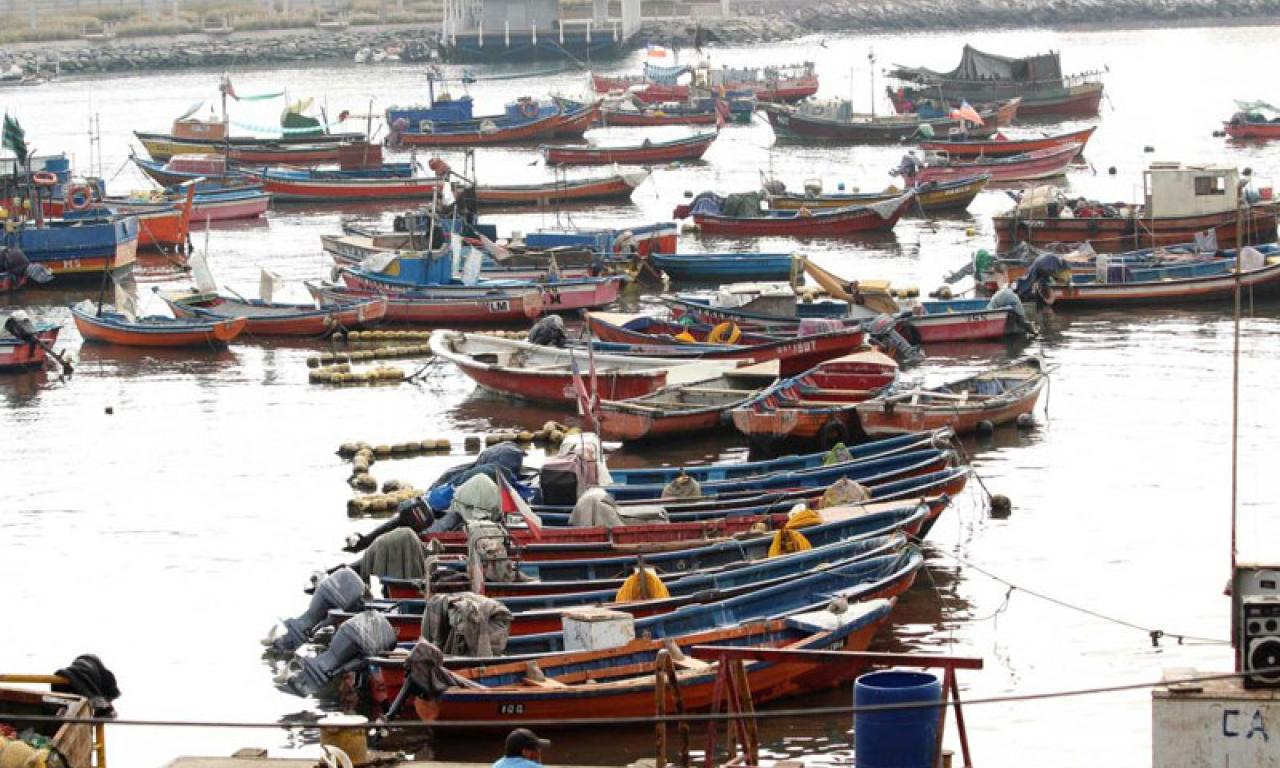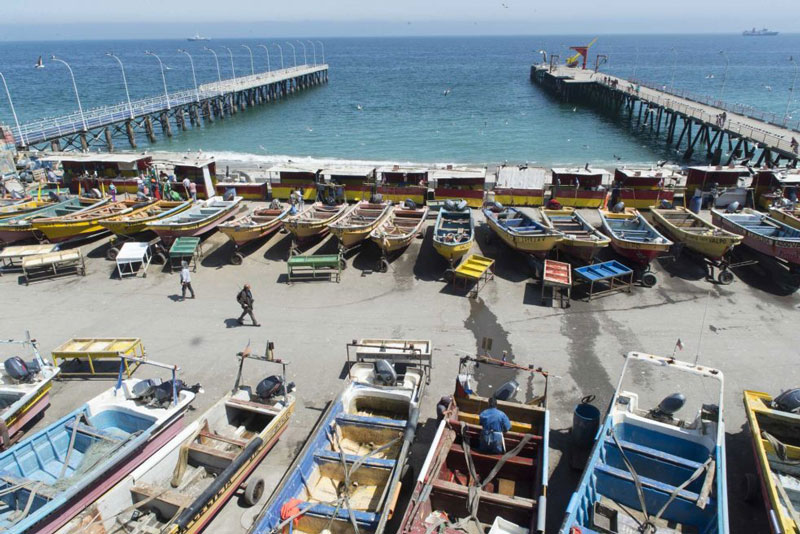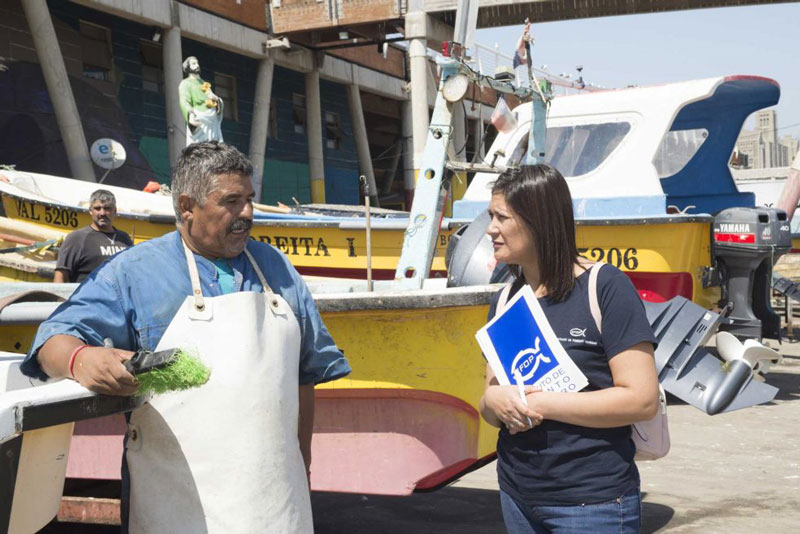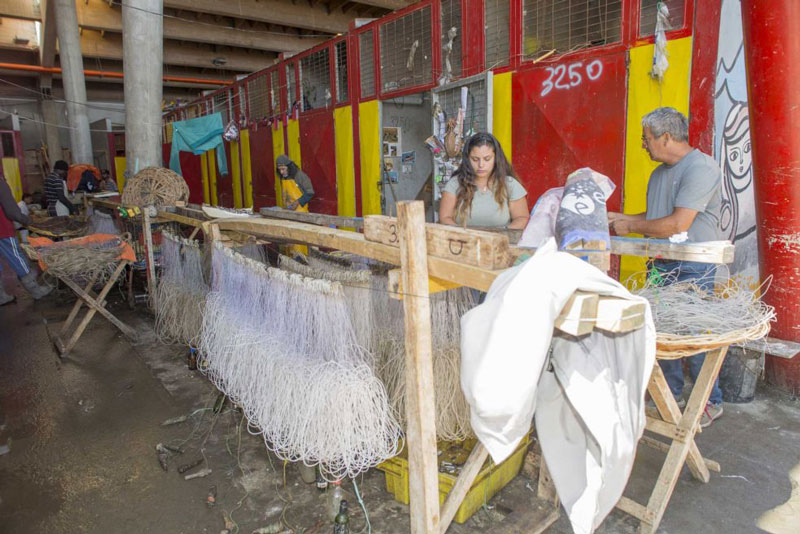
Elizabeth Palta Vega, head of the economics department at the Institute for Fisheries Development in Chile, was a contributing author to the IHH case study for Chile. Palta Vega, who has worked in small-scale fisheries for 20 years, is interested in the human dimension of fishing, from harvesting to the final consumption of fish and aquatic foods. We spoke with her about the importance of the IHH study and how it will help raise awareness of small-scale fisheries in Chile.
llluminating Hidden Harvests (IHH): The contribution of small-scale fisheries to sustainable development is a collaborative study led by the UN Food and Agriculture Organization, Duke University, and WorldFish. In this series, we profile some of the more than 300 experts from over 50 countries who contributed to the 58 country and territory case studies and thematic studies included in the IHH research, due out in 2021.
Elizabeth Palta Vega, head of the economics department at the Institute for Fisheries Development in Chile, was a contributing author to the IHH case study for Chile. Palta Vega, who has worked in small-scale fisheries for 20 years, is interested in the human dimension of fishing, from harvesting to the final consumption of fish and aquatic foods. We spoke with her about the importance of the IHH study and how it will help raise awareness of small-scale fisheries in Chile.

Why do you think the Illuminating Hidden Harvests study is important??
The study is important because it addresses all the resources harvested by small-scale fisheries. Typically, we address management on a single-species basis. Still, we lose the general context that is important to fishing activities that are not species-specific (such as small-scale fisheries). Through the IHH study, various themes emerged, such as illegal fishing, duplicated landing records, and portions of the fleet that are non-operational, among other things.
What’s new in the approach IHH is taking to understand small-scale fisheries in Chile?
The integration of various aspects of small-scale fisheries—including socio-economic, organizational, biological, and nutritional aspects—allows a deeper and more systematic look at the sector.
What were the biggest challenges for your country team when completing the IHH Chile case study?
Chile is a fishing country with highly regulated fisheries and a lot of information on fishing activity; however, information gaps persist. For example, little is known about the nutritional contribution of seafood products, catch landings can be unregistered, and sales occur at free fairs [seasonal markets that pop up in communities] and markets, among other aspects.
In the IHH Chile case study, we only used secondary data as it was not possible to conduct data collection. In that sense, there is a great challenge to generate primary information on the most neglected aspects.
In your opinion, how will the IHH study be used in Chile?
The IHH study results in my country will encourage more resources and research devoted to quantifying and understanding illegal fishing and understanding how catching unregulated species contributes to household incomes.

Do you think the IHH findings will have any positive or negative impacts on small-scale fishing, food security, or the environment in Chile? In what way?
An immediate effect of the study has been finding evidence for the data gaps. Today, we are committed to knowing the per capita seafood consumption and what proportion comes from small-scale fishing.
What can be done now to ensure that the IHH study and its work have the most significant effect?
The forthcoming dissemination of the study [later in 2021] is now essential, including sharing the country and territory case studies in the South America region.
How can research such as IHH help achieve the SDGs, particularly in eradicating poverty and ending hunger in developing countries?
Knowledge of the availability of marine and inland protein is critical to public policy planning in the nutritional aspects of the population, which is undoubtedly aligned with the SDGs and alleviates hunger in developing countries.

What have you learned as you conducted this study?
The importance of small-scale fisheries regarding fish consumption among the local population, employment generated income inequality among small-scale fishers, and the lack of clarity on operational small-scale fishing vessels.
Any other comments?
Working on the IHH Chile case study, which I did with two women colleagues, was an enriching experience.
